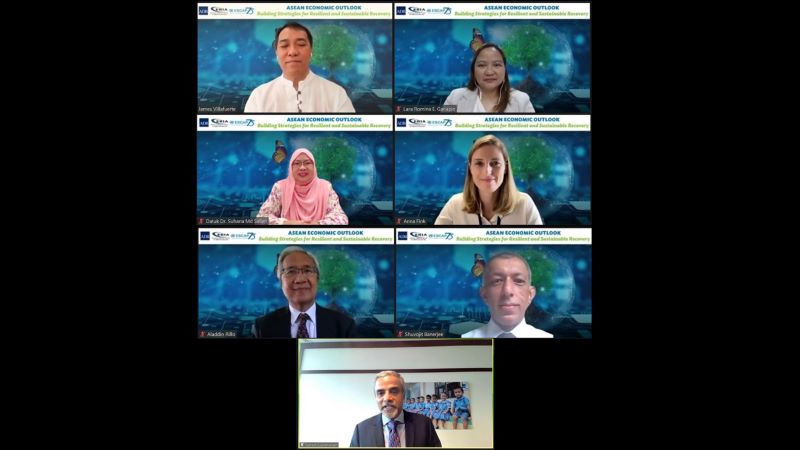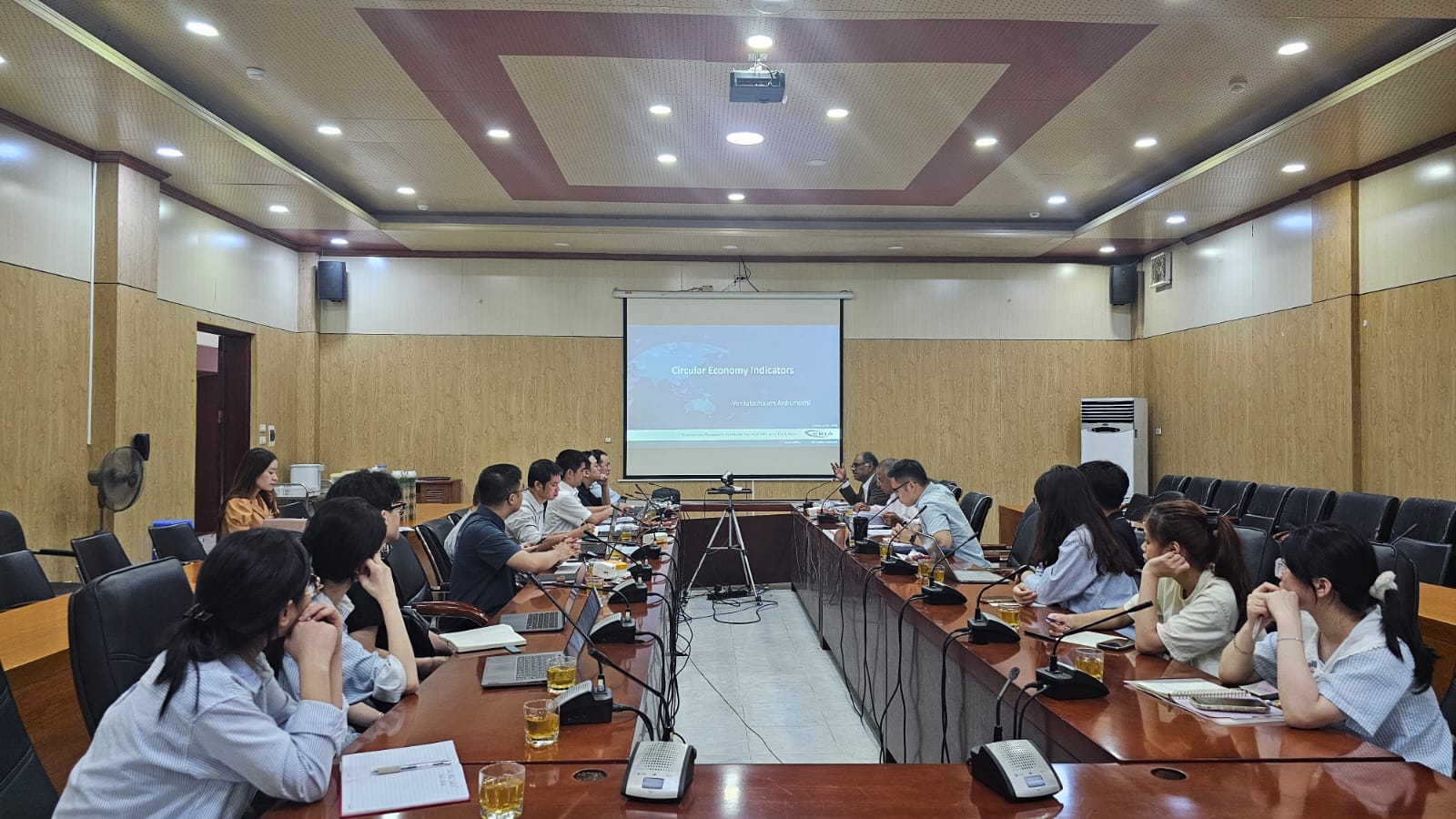ASEAN Economic Outlook: Building Strategies for Resilient and Sustainable Recovery
Date:
26 October 2022Category:
Multimedia, NewsShare Article:
Print Article:
Manila/Jakarta/Bangkok, 26 October 2022: Developing Asia continues to recover from post-pandemic crisis and the ASEAN region growth is expected to reach an average of 5% in the next couple of years. However, global uncertainties are undermining prospects for a return to strong and lasting growth. Among the top concerns is the geopolitical uncertainty including the Russian invasion to Ukraine, global economic risks (such has trade and supply chain disruption, high commodity prices and financial stress) and the rising inequality especially on the increased number of people in extreme poverty and job loss over the past 2 years. More so, with limited fiscal space and rising debt, countries and policy makers are faced with difficult challenges to make sure that the post-pandemic recovery scenarios are taking into account the sustainability or SDG aspects and staying on a net-zero path.
Co-organized by the Economic Research Institute for ASEAN and East Asia (ERIA), the Asian Development Bank (ADB) and United Nations Economic and Social Commission for Asia and the Pacific (UNESCAP), the webinar discussed some of the implication of competing short-term, medium-term and long-term challenges on the region’s prospect and solutions to build a resilient and sustainable recovery. The webinar was joined by more than 480 participants across the region.
Ramesh Subramaniam, Director General, Southeast Asia Department, ADB, set the scene by highlighting the optimistic view for the region’s prospect of growth although challenges remain. Looking at the current trend, he mentioned at least 3 main obstacles confronting ASEAN policymakers, namely; 1) the uneven growth – bigger and resource-rich economies are growing faster compared to the smaller and more export-dependent economies; 2) high inflation scenario around the world; 3) energy and commodity price boom; 4) national disaster risks. He emphasized how policies should be prioritized to tackle those macro-economic challenges while at the same time paving the ways to a more sustainable solution.
Shuvojit Banerjee, Officer-in-charge, Macroeconomic Policy and Analysis Section, UNESCAP, presented some of the insight from UNESCAP flagship report ‘Economic and Social Survey of Asia and the Pacific.’ He highlighted how the K-shaped recovery has brought the issue of the inequality with vulnerable sections (youth, women and informal workers) disproportionately affected. He explained the need for fiscal policies where government must maintain a smart expenditure in healthcare, education and social protection. In addition, he also mentioned how strategies for inclusive development should devote more attention to pre-distribution policies. Lastly, he mentioned central bank’s role to promote inclusive development through currency issuance and financial regulation.
Datuk Dr. Suhana Binti MD. Saleh, Director, Economic Planning Unit, Malaysia, shared some of strategic policies that the Malaysian government has taken to streamlined efforts in boosting domestic growth, those include promoting open investment, strengthening fiscal governance, enhancing productivity, leveraging participation in the global value chain, and advancing green growth. She also highlighted the importance of accelerating transition to digital economy and how the growing innovation in the region plays an important role for an inclusive post pandemic recovery.
Aladdin D. Rillo, Senior Economic Advisor, Economic Research Institute for ASEAN and East Asia (ERIA) emphasized the need for ASEAN to work together and maximize its role in regional and multilateral cooperation such as RCEP or other regional trade agreement. He highlighted how multilateral cooperation will also help ASEAN address number of important challenges such as digitalisation and climate change. Moving forward, he emphasized how ASEAN should remain proactive to ensure that the region is able to drive priorities issues like trade in services, e-commerce and sustainable digital economy.
James P. Villafuerte, Principal Economist, ADB, shared his view on how ASEAN needs to leverage the regional economic cooperation for inclusive growth. To strengthen the open trade and regional cooperation, he underlined that policies should focus to enhance physical and digital connectivity, the use of technology, and better management in supply chain. He also added the importance of digital services and highlighted some of the challenges such as: 1) investment for digital infrastructure; 2) digital divide; 3) tax for digital economy.
Lara Romina E. Ganapin, Bangko Sentral ng Pilipinas (BSP), Philippines, highlighted measures BSP has taken in providing financial access during critical time. In recent years, she mentioned that most of central banks are starting to give more focus on sustainability in the financial system, including the use of digitalisation for payment process. For her, it’s important that the central bank manages and regulates digital transaction while ensuring the payment safety. Through green financing and investment, she mentioned that central bank’s role is critical to ensure that the post pandemic recovery is moving towards the sustainable goals.
The webinar was moderated by Anna Fink, Country Economist, Southeast Asia Department, ADB. On the Q&A session, panellists discussed how financial inclusion can be achieved and how policies can directly address issues across industries, including the future emerging industries in the post pandemic world.








